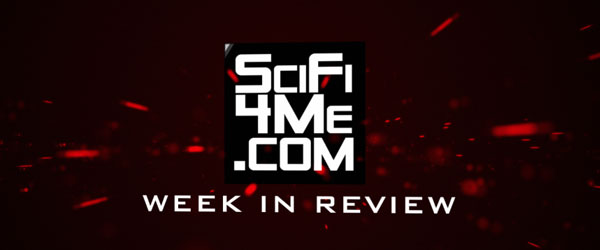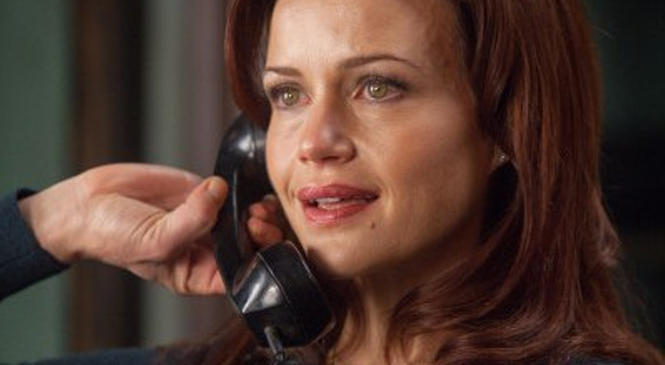THE TIM HARVEY SHOW #6: Why It’s OK to NOT Like BLADE RUNNER

This week on the The Tim Harvey Show, we – shocker of shockers – talk about the latest harassment scandals, which has now brought down Harvey Weinstein and Andy Signore, founder of Screen Junkies. The future looks not so bright for the worst players in the entertainment industry, and while that is definitively a good thing, the long-term impact on the genre world is still unclear.
The treatment of women also plays into some of the criticisms of the original Blade Runner, and with the release of its sequel last weekend, those criticisms and others are being discussed again by genre fans. Mr. Harvey takes a look at how Film Noir influenced the first film for good and ill, his own interest in that genre and its issues, and how Blade Runner influenced and continues to influence our cinematic view of the future. And, more importantly, no matter how influential or popular it is, why it’s OK to not like Ridley Scott’s iconic film.
[audioplayer file=”http://www.podcasts.com/download/scifi4me-radio-h2o-1c319f2fd/THE-TIM-HARVEY-SHOW-6-Why-Its-OK-to-NOT-Like-BLADE-RUNNER-5731″ titles=”THE TIM HARVEY SHOW #6: Why It’s OK to NOT Like BLADE RUNNER” artists=”SciFi4Me Radio” track=”4E95D7″ text=”ffffff”]
____________________






Of course it’s OK to not enjoy watching ‘Blade Runner’. Heaven knows I didn’t enjoy watching ‘Blade Runner’. Paulene Kael didn’t enjoy watching ‘Blade Runner’ either. (http://scrapsfromtheloft.com/2016/12/28/blade-runner-review-pauline-kael/) The movie tanked at the box office. As a cineplex movie, it was pretty much a failure.
It’s a hard movie to watch. As you pointed out, the visuals dominate the movie with little by way of dialogue to anchor the viewer. As Kael put it:
“Blade Runner doesn’t engage you directly; it forces passivity on you. It sets you down in this lopsided maze of a city, with its post human feeling, and keeps you persuaded that something bad is about to happen. Some of the scenes seem to have six subtexts but no text, and no context either.”
Beyond this, the movie offers a relentlessly grim view of human nature. Recent complaints about ‘Blade Runner’ cite the fact that Deckard shoots two female replicants in the back, that the replicants are, effectively, sentient slaves. While the movie does not celebrate these things, it is unflinching in their presentation. They are essential to the movie, underscoring the darkness of the age, of Deckard’s character and the duties he executes. Harrison Ford’s character is something of a bait-and-switch. Deckard is not a hero, despite his standard-hero-issue good looks. He has much more in common with Jake Gittes from ‘Chinatown’ than with Han Solo or Indiana Jones. Yet, until the very end, we wait for his transformation – and are disappointed. Like Gittes, Deckard doesn’t overturn the existing order in proper heroic form. He leaves us with little, if anything, to cheer for. This is the way the world ends: Not with a bang, with a whimper.
‘Blade Runner’ speaks to the deepening cynicism of the early early to mid 1980s. One of the reasons the Film Noir elements work in Blade Runner work so well is because the mood of American Society after the Vietnam War, in an era of oil-shocks and financial crisis, mirrors the post WW I nihilism of the 1920s. The movie reflects the logical end-point of the ‘Bright Lights, Big City’ era, in which greed was good, and enriching oneself trumped any responsibility to larger society.
The real triumph of ‘Blade Runner’ was the breadth of it’s influence on what came after. Visually, it influenced (and still influences) fashion and design. It combined a number of existing themes in something new: An amalgam of corporate overreach, economics, machine intelligence, ecology, social class, film noir and urban culture. It is a seminal work in the Cyberpunk subgenre. While imperfectly executed, the visual and narrative impact of ‘Blade Runner’ on 21st century science fiction is profound.
In that we still feel the imprint and aftershocks of late 80s culture on society today, ‘Blade Runner’ still speaks to us. However, what is has to say is not terribly pretty, flattering or optimistic. Given the nature of its message, and that that the movie isn’t easily digestible, it doesn’t surprise me that some fans are put-off by it.
Even so, ‘Blade Runner’ should be on the watch list of anyone who aspires to be more than a casual science fictions fan.